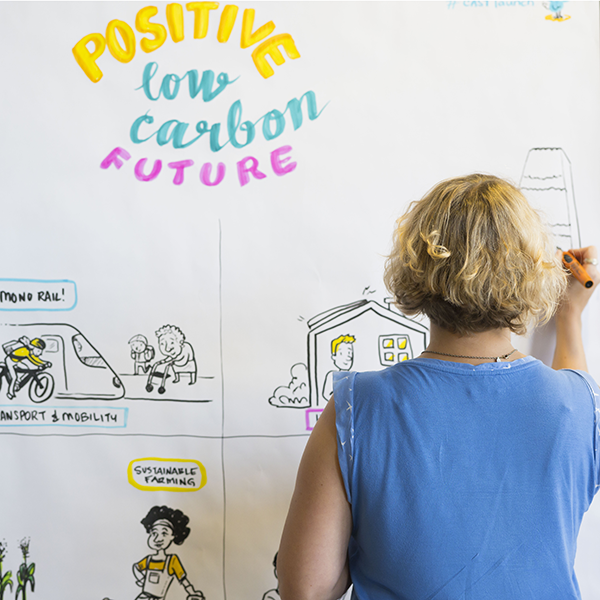The consortium draws on historical examples of social change to understand how the uptake of low-carbon lifestyle choices can be accelerated, as well as examining what works when it comes to communicating climate-friendly choices to people in all their various roles, such parents, employees, consumers or policy makers. Co-benefits, for example the increased fitness and reduced air pollution associated with active travel, play an important role in this. By applying a ‘learning by doing’ methodology we also test and evaluate practical interventions, working with a variety of partners to trial low carbon initiatives with individuals and households, industry, and government, helping them understand when and where the most significant opportunities for emissions reductions arise.
We are now into our second year at the CAST Centre, and have been able to share findings on a range of topics, including low-carbon behaviours during lockdown, trends in UK climate attitudes, and the prevalence of flying among climate researchers. We have produced our own sustainability charter to set out how we intend to work towards a low carbon research culture, and our focus over the next year will be on the UN’s Climate Change Conference (COP26) in Glasgow next November.
Our recent Stories of Change webcasts brought together grassroots and third sector organisations to share lessons from innovative and imaginative low carbon change, and discussed the question of how climate action can have a ripple effect. The two short webcasts and two full length webinars are available here. We also recently released some findings that achieved some widespread media coverage and may be of interest, concerning the high level of flying among climate researchers. Alongside these findings we released our own Sustainability Charter. This describes how we are embedding low carbon transformation in our own research culture and practices and making the most of opportunities to influence the sustainability strategies of our host institutions, funders and partners.
While there is now strong international momentum on climate change mitigation, it is clear that critical targets will be missed without fundamental changes to the way we all live – by putting people at the heart of transformation we are aiming to achieve a fundamental change in our understanding of how to transform lifestyles and systems of governance for a positive and sustainable low-carbon future.
For interest, our recent briefing notes are below:
CAST 1: Engaging the public with low carbon lifestyle change
CAST 2: Public opinion in a time of climate emergency
CAST 3: Climate Change Citizens’ Assemblies
CAST 4: How has Covid-19 impacted low carbon lifestyles and attitudes towards climate action?
If you would like to find out more about our work please visit: www.cast.ac.uk




